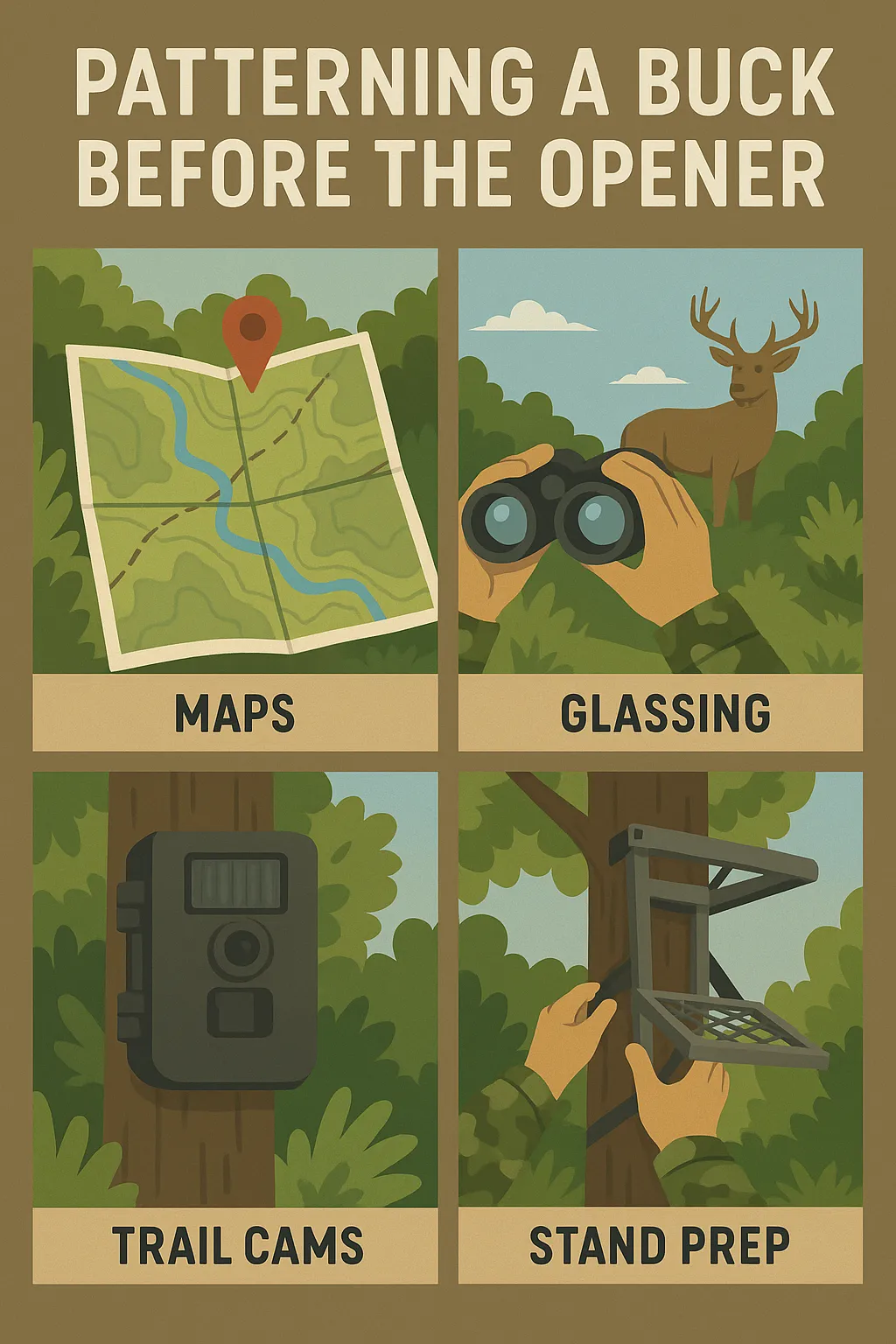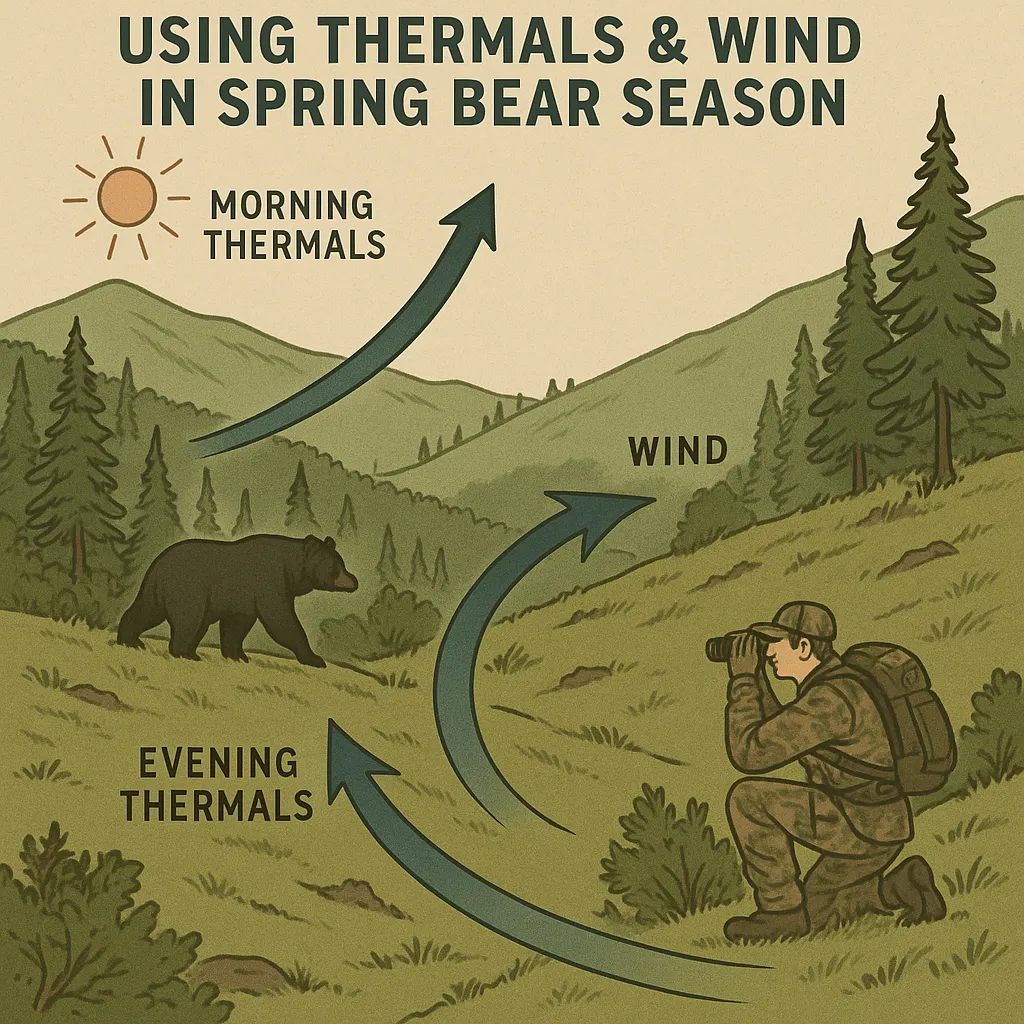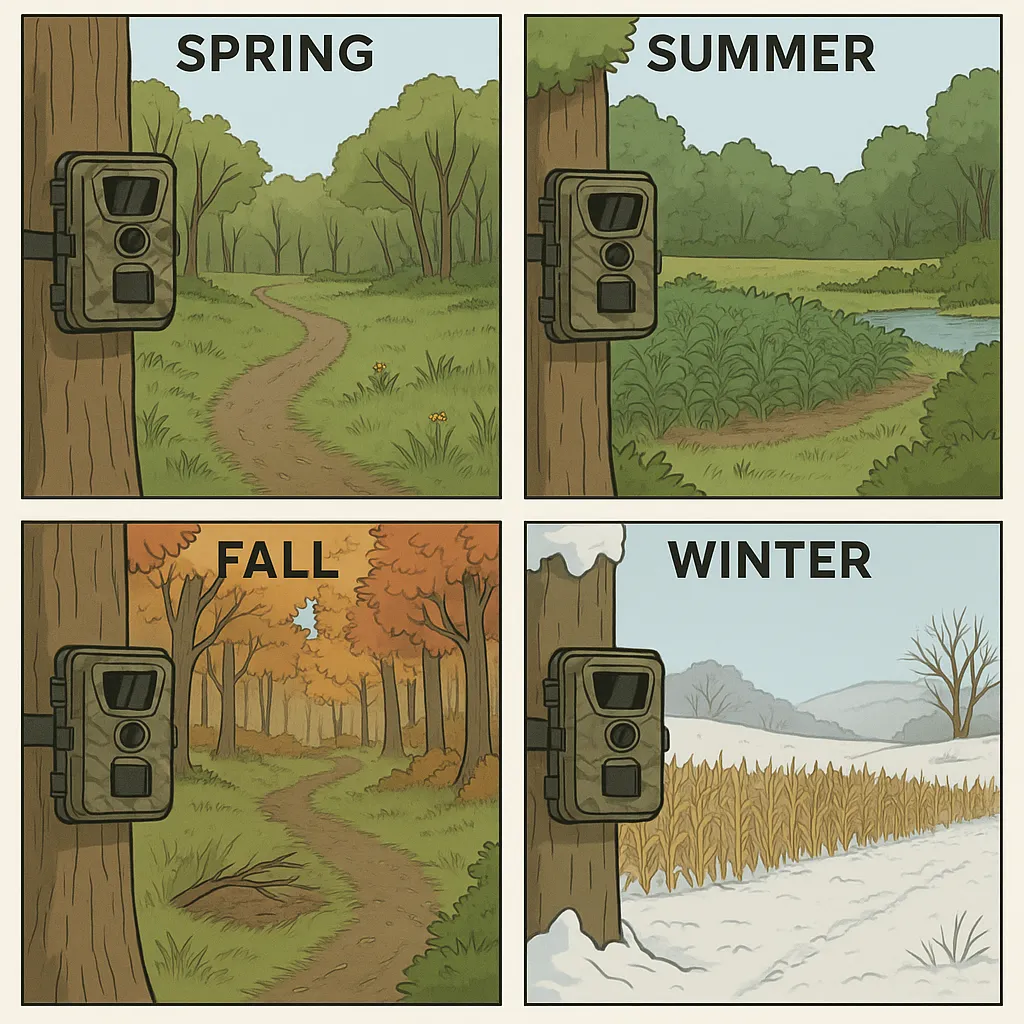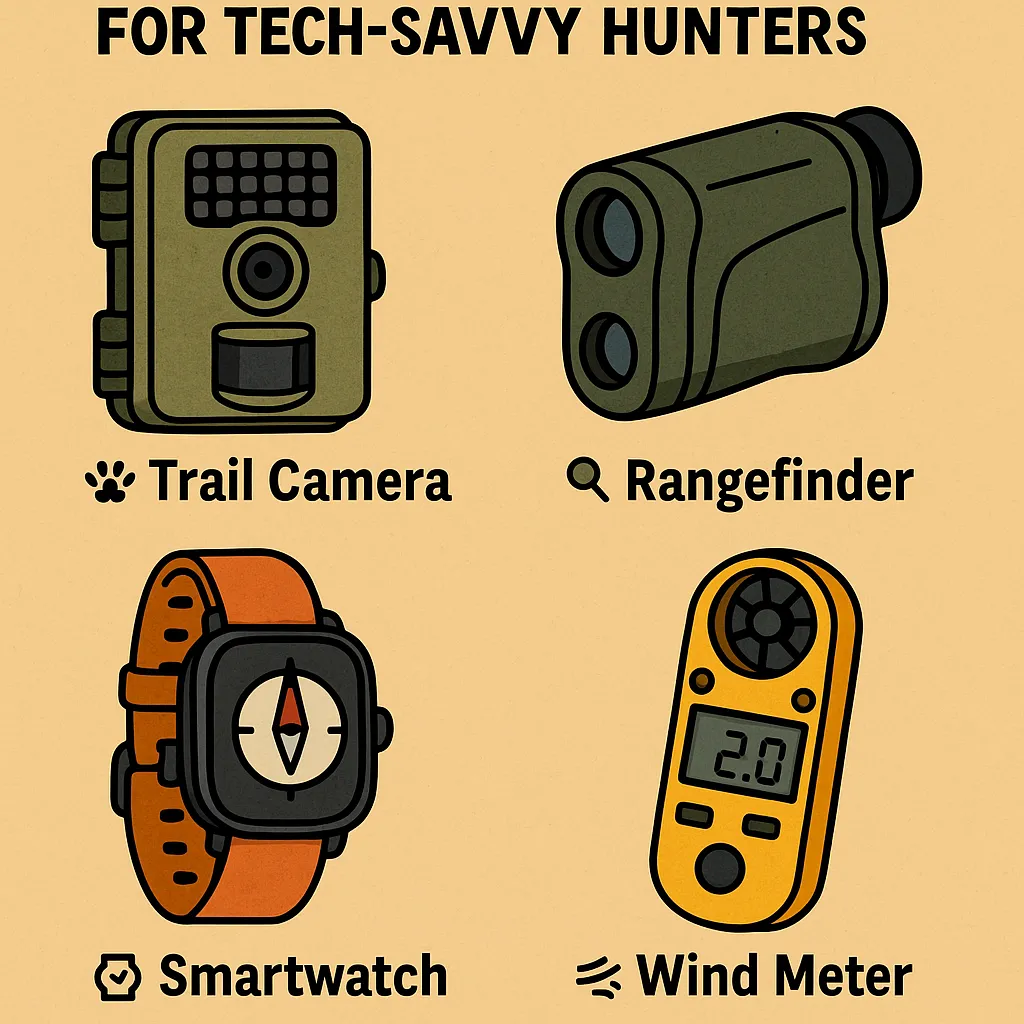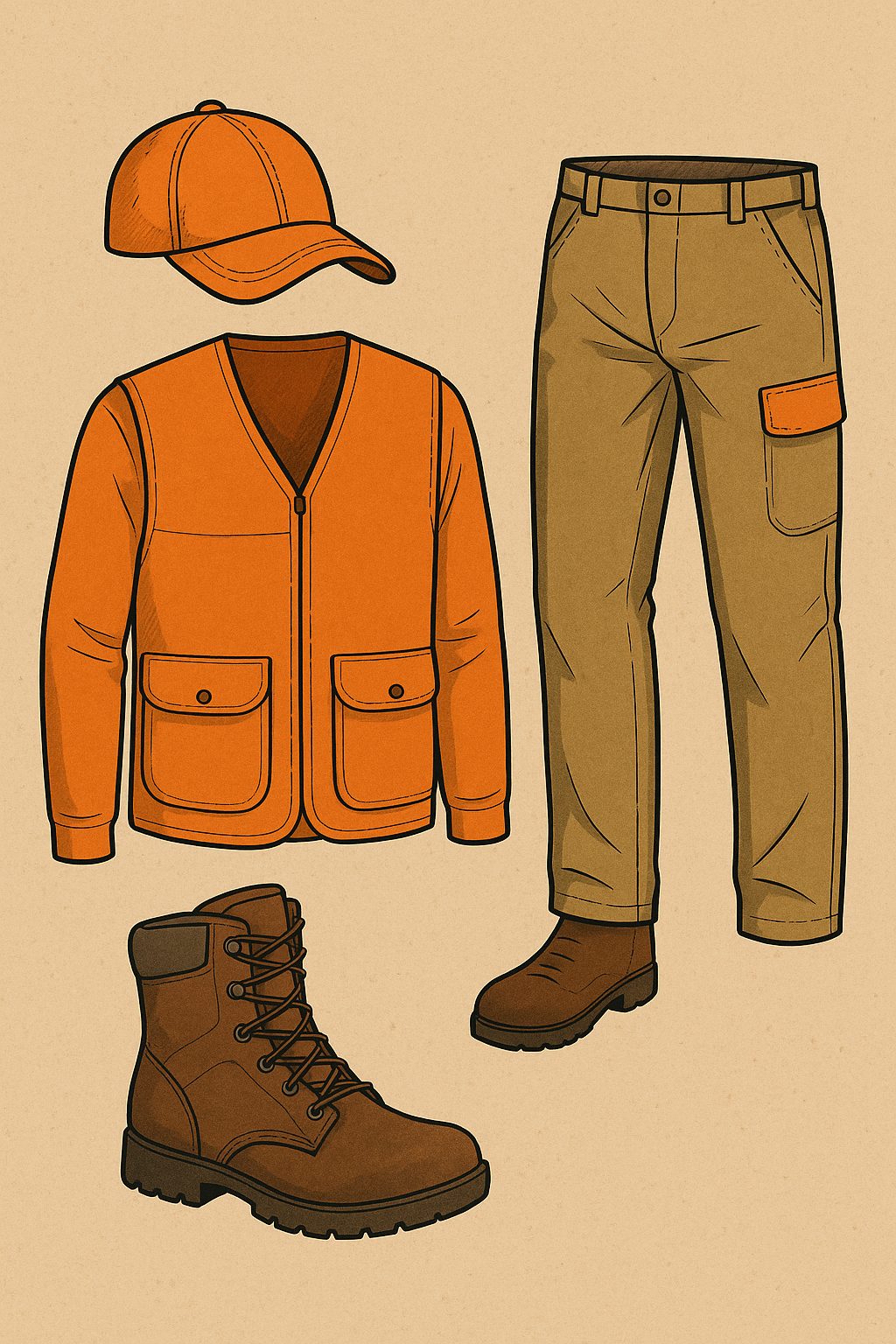
Essential Clothing for Bird Hunting in Michigan
From frost-bitten cornfields to early-season grouse thickets dripping with dew, Michigan bird hunters face every weather curveball imaginable. Your clothing isn’t just for comfort—it’s for performance, concealment, and safety. Whether you’re chasing teal at sunrise or busting cattails for late-season roosters, wearing the right gear keeps you sharp, silent, and protected.
Why Clothing Choice Matters
-
Comfort: Long hikes or static sits demand adaptable layering
-
Concealment: Birds see movement and contrast—blending in is vital
-
Protection: Thorns, briars, mud, and cold can ruin a hunt fast
-
Safety: Blaze orange and waterproofing prevent mishaps and hypothermia
Breakdown by Season & Terrain
🍂 Early Season (September – Early October)
Conditions: Warm days, thick foliage, high mosquito activity
Primary Species: Teal, early-season geese, grouse, woodcock, doves
Clothing Checklist:
-
☑️ Lightweight, moisture-wicking base layers
-
☑️ Breathable brush pants or upland chaps
-
☑️ Camo or earth-tone long-sleeve shirts
-
☑️ Upland vest or belt with shell loops
-
☑️ Blaze orange hat (upland requirement)
-
☑️ Snake boots or waterproof hikers
-
☑️ Bug net/gaiter and insect-repellent clothing
Pro Tip: Use synthetic fabrics over cotton—they wick sweat and dry fast.
❄️ Late Season (November – December)
Conditions: Freezing temps, snow, wind, ice
Primary Species: Mallards, divers, Canada geese, pheasants
Clothing Checklist:
-
☑️ Merino wool or synthetic thermal base layers
-
☑️ Insulated bibs or heavy brush pants
-
☑️ Fleece-lined hoodies or technical layering systems
-
☑️ Gore-Tex or waterproof outer shell
-
☑️ Balaclava, beanie, and neck gaiter
-
☑️ Insulated waterproof boots (rubber or leather)
-
☑️ Handwarmers, wool socks, liner gloves
Pro Tip: Pack an extra pair of dry socks and gloves—always.
Species-Specific Add-Ons
🪶 Upland Hunting (Grouse, Woodcock, Pheasant)
-
Blaze orange vest + hat (required)
-
Rugged canvas or briar-resistant pants
-
Shooting gloves for grip and trigger feel
-
Layered midweight jackets for cool mornings
-
Waterproof gaiters in wet alder or swampy covers
🦆 Waterfowl Hunting (Marsh, Boat, Field)
-
Full camo outerwear (pattern to match habitat)
-
Chest waders (neoprene for cold, breathable for warm)
-
Duck hunting parka with built-in hood
-
Windproof gloves or muff
-
Layout blind snow cover (late-season)
🪺 Field Goose Hunting
-
Snow camo jackets or white over-pull in December
-
A-frame blind concealment layer (matching clothing to blind brush)
-
Sit pad or insulated seat
-
Thermal boots (rated to -20°F)
🧥 Top Clothing Brands for Bird Hunting
| Brand | Why Hunters Trust It |
|---|---|
| Filson | Legendary upland durability (brush pants, vests) |
| Sitka Gear | High-tech layering for waterfowl & late season |
| First Lite | Wool blends perfect for quiet, mobile hunts |
| Orvis | Classic upland elegance + field-tested fabrics |
| Drake Waterfowl | Great outer shells & layout blind gear |
| Browning | Affordable, reliable base & mid-layers |
🎯 Safety & Practical Tips
-
Always wear blaze orange when upland hunting (hat + vest minimum)
-
Carry layering options in your pack—weather shifts fast in Michigan
-
Avoid cotton in cold weather—it traps moisture and chills quickly
-
For boat or marsh hunting, use floatation bibs or jackets where possible
-
Label your gear—especially in group hunts or flooded timber
✅ Field Checklist
| Item | Early | Mid | Late |
|---|---|---|---|
| Moisture-wicking base layer | ✅ | ✅ | ✅ |
| Blaze orange (upland) | ✅ | ✅ | ✅ |
| Insulated waterproof boots | ✅ | ✅ | |
| Chest waders (duck/goose) | ✅ | ✅ | ✅ |
| Neck gaiter & beanie | ✅ | ✅ | |
| Technical gloves | ✅ | ✅ | ✅ |
Conclusion: Dress to Hunt, Not to Survive
The birds don’t care if you’re cold, soaked, or uncomfortable—but your shot and safety will. Michigan’s seasons demand smart layering, adaptive gear, and an eye for concealment. With the right clothing, you’ll go farther, hunt longer, and stay focused where it matters most—in the moment before the flush.
“The best clothing doesn’t just keep you warm—it keeps you hunting.”
Leave A Comment
Related Posts
Trail Cam Strategy by Season: When & Where to Set […]
Women-Specific Hunting Gear That Actually Performs in 2025 Forget the […]
Must-Have Gadgets Under $100 for Tech-Savvy Hunters You don’t need […]

